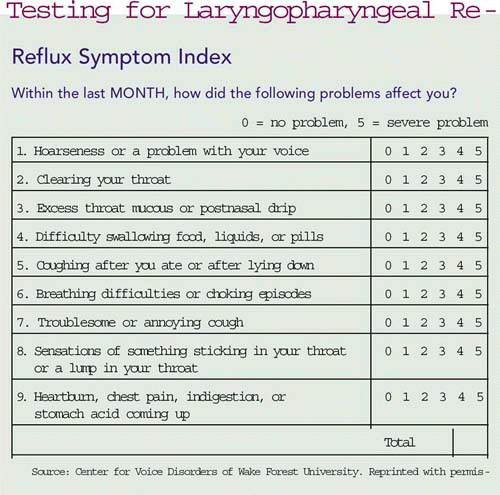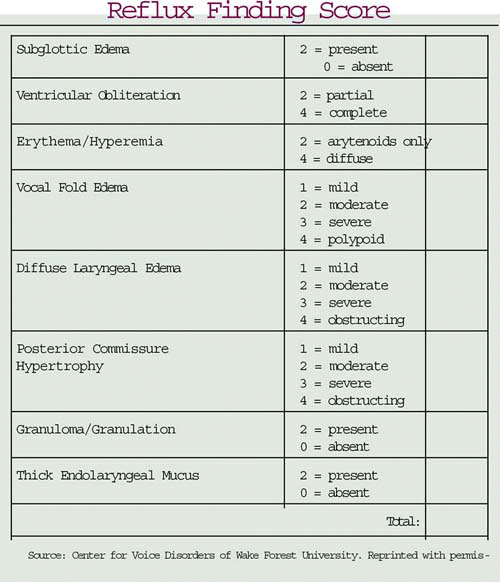There is debate about what constitutes a positive study; some work suggests that it takes less acid or a shorter length of exposure to acid high in the larynx to cause irritation than in the esophagus. Thus, although a drop in pH to 4 has been used for years to indicate the presence of GERD, there is pretty good evidence now to suggest that acid exposures to down to 5 are significant in the larynx, stated Dr. Ford.
Explore This Issue
May 2006Actually, according to Dr. Koufman, the best test is an experienced clinician. Patients with abnormal symptoms or findings or pH tests or biopsies are easy. But sometimes patients whom we think have the disease have a normal pH study, which just means that they had a good day. Sometimes the pH device actually helps the reflux because some people find it so irritating that they swallow continuously and the more you swallow the more you drive the system and cut down on reflux.
Waiting in the wings, however, is a pepsin immunoassay for diagnosis of LPR. Commercialization of the assay may come relatively soon, according to Dr. Koufman, who holds the patent. There is a need to have something highly objective and indisputable where you can say, with a simple test, ‘Yes, the patient has LPR’ or not, Dr. Ford explained.
It will be another generation before we have a complete understanding of LPR. – -Jamie A. Koufman, MD
Treatment Options Similar to GERD’s
Although patients with mild or intermittent LPR symptoms may improve after making dietary or lifestyle modifications or taking an H2 antagonist, the majority of LPR patients seem to do best with twice daily dosing of PPIs The reason: none of the PPIs exert acid suppression (intragastric pH >4) for more than 16.8 hours. Some patients do even better when an H2 antagonist is added. In many, the minimum initial treatment period with PPIs is six months. Some may have to take these drugs for extended periods.
‘Not All That’s Red’ is LPR
For gastroenterologist Michael F. Vaezi, MD, PhD, Professor of Medicine and Clinical Director of the Division of Gastroenterology and Hepatology at Vanderbilt University School of Medicine in Nashville, TN, a problem arises when suspected LPR patients don’t respond to PPIs. I believe there is such a thing as reflux laryngitis or LPR, Dr. Vaezi told ENToday. I believe that patients who respond to PPIs have the disease and we should treat them as such. But the controversy centers around the nonresponders. [Some] consider everything that’s red in the throat as reflux. But not all that’s red is GERD.



Leave a Reply